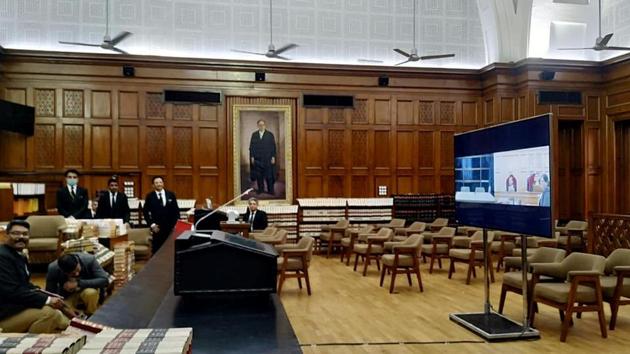Title: LEKSHMI M. NAIR, A v SUDHAMONY AMMA
Citation: MFA (SUCCESSION) NO. 3 OF 2023
Dated on: 9.1.2024
Corum: THE HONOURABLE MR. JUSTICE SATHISH NINAN
Facts of the case:
In a recent legal development, the High Court of Kerala addressed a critical issue pertaining to the jurisdiction of courts in the state in matters related to probate and letters of administration. The case in question, MFA (Succession) No. 3 of 2023, has significant implications for the authority of courts to grant and revoke probates and letters of administration.
The High Court’s ruling hinged on a key condition: the absence of a government notification in the official Gazette conferring jurisdiction. According to the court’s decision, without such a notification from the Government of Kerala, no court within the state has the legal standing to preside over cases involving the issuance and revocation of probates and letters of administration.
This ruling underscore the importance of a formal notification in delineating the scope of a court’s authority in probate matters. Probate, a legal process that validates a will, and letters of administration, which authorize the management and distribution of a deceased person’s estate in the absence of a will, are integral components of succession law. official notification in defining the extent of a court’s jurisdiction over probate cases. Essential elements of succession law include letters of administration, which permit the administration and distribution of a deceased person’s estate in the absence of a will, and probate, a legal procedure that confirms a will.
The heart of the matter lies in a dispute between the petitioner and the respondents over the issuance of letters of administration. These legal documents play a pivotal role in facilitating the orderly distribution of a deceased person’s estate. The dismissal of the petition by the District Judge adds an intriguing layer to the case, leaving room for further exploration of the legal intricacies involved.
Legal Provision
A learned single judge of this court interpreted Section 264 of the Indian Succession Act, 1925 (hereinafter referred to as “the Act”) in Natarajan T.K. v. T.K.Raman Achari 2023 (2) KHC 652, holding that no court in the State has the authority to grant or revoke probates and letters of administration in the absence of a notification by the Government of Kerala in the official Gazette conferring jurisdiction. Although 264(1) gives the District Judge the authority to grant and revoke letters of administration and probates in any case involving cases within his District, 264(2) seems to impose some limitations. According to Section 264(2), no court located outside of the boundaries of the towns of Calcutta may hear a matter involving a Hindu, Muhammadan, Sikh, Jain, or exempt individual. Applications for letters of administration or probate may be considered in Madras and Bombay even in the absence of a state government announcement granting permission. However, in situations when Section 57 of the Act is applicable, no such communication is required.
Court Analysis and Judgement
The learned District Judge, in connection with MFA (Succession) No. 3 of 2023, took a consequential step by dismissing a petition for the issuance of letters of administration and was also of the opinion that the decision in Natarajan’s case (supra) requires consideration by a Division Bench. And ordered the registry to place matter before the Honourable the Chief Justice for orders in the said regard. In conclusion, this legal episode underscores the meticulous nature of probate law and the pivotal role of government notifications in delineating the jurisdiction of courts. As the legal community awaits further details on the dismissal of the petition, the case serves as a reminder of the intricate web of legal considerations that surround matters of succession and estate administration in the Indian legal framework.
“PRIME LEGAL is a full-service law firm that has won a National Award and has more than 20 years of experience in an array of sectors and practice areas. Prime legal fall into a category of best law firm, best lawyer, best family lawyer, best divorce lawyer, best divorce law firm, best criminal lawyer, best criminal law firm, best consumer lawyer, best civil lawyer.”
Written by- Namitha Ramesh


